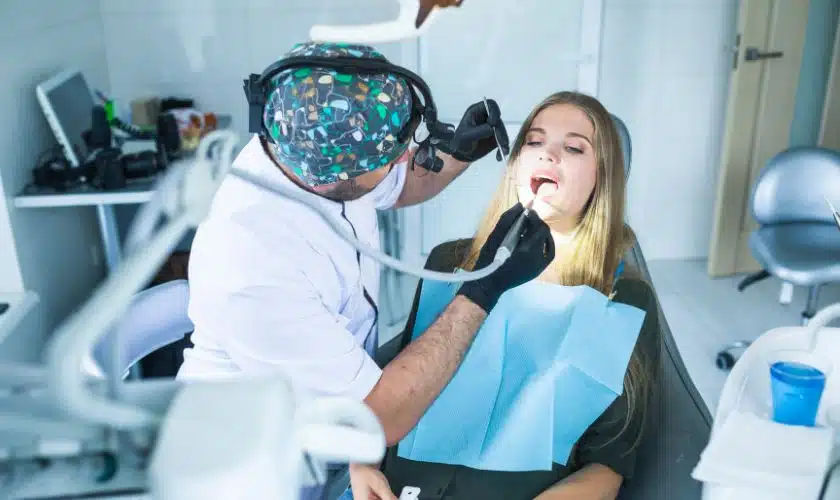In the realm of dental health, there’s a specialist you might not hear about as often as your regular dentist: the endodontist. Endodontists specialize in diagnosing and treating issues related to the inner tissues of teeth, known as the pulp. While many dental problems can be addressed by a general dentist, certain signs indicate that it might be time to seek endodontic treatment. Here are some key signs to watch out for:
1. Persistent Tooth Pain
One of the primary indicators that you may need endodontic treatment is persistent tooth pain. If you experience throbbing or sharp pain in a tooth, especially when chewing or applying pressure, it could be a sign of an underlying issue with the pulp. This pain may come and go initially but tends to worsen over time. Ignoring persistent tooth pain can lead to further complications, so it’s essential to consult with an endodontist in Houston for an accurate diagnosis and appropriate treatment.
2. Swollen Gums
Swollen gums around a specific tooth can be a red flag for various dental issues, including pulp inflammation or infection. If you notice swelling, tenderness, or a bump near the affected tooth, it’s crucial to seek prompt attention from an endodontist in Houston. Swollen gums can indicate an abscess, which occurs when pus collects in the tooth’s surrounding tissue due to bacterial infection. Endodontic treatment may be necessary to address the underlying infection and prevent further complications.
3. Sensitivity to Hot and Cold
Do you wince in pain when you sip on a hot cup of coffee or indulge in a scoop of ice cream? Sensitivity to hot and cold temperatures, particularly in a specific tooth, can indicate a problem with the pulp. The pulp contains nerves and blood vessels, so when it becomes inflamed or infected, you may experience heightened sensitivity to temperature changes. While sensitivity alone doesn’t always signify the need for endodontic treatment, it’s worth discussing with your dentist or an endodontist to rule out any underlying issues.
4. Tooth Discoloration
Have you noticed a change in the color of a tooth? Discoloration, particularly darkening or graying of a tooth, can signal issues within the pulp. When the pulp becomes damaged or infected, it can affect the tooth’s blood supply, leading to changes in color. While tooth discoloration can have other causes, such as staining from food or drinks, it’s essential to have any significant changes evaluated by a dental professional. An endodontist can determine whether endodontic treatment is necessary to preserve the tooth’s health and appearance.
5. Cracked or Chipped Teeth
Cracks or chips in teeth can create pathways for bacteria to enter the pulp, leading to infection and inflammation. If you’ve experienced trauma to a tooth or notice visible damage, it’s essential to have it examined by an endodontist. Even small cracks or chips can compromise the tooth’s structural integrity and increase the risk of pulp damage. Prompt treatment can help prevent further complications and preserve the tooth’s function and vitality.
6. Previous Dental Procedures
If you’ve undergone extensive dental work in the past, such as multiple fillings or crowns on the same tooth, you may be at higher risk of needing endodontic treatment. Dental procedures can weaken the tooth’s structure and increase susceptibility to pulp damage over time. Additionally, if you’ve had a root canal in the past and experience renewed symptoms in the same tooth, it could indicate a need for retreatment or further intervention by an endodontist.
Seeking Endodontic Services
If you’re experiencing any of the signs mentioned above, don’t delay seeking professional dental care. An endodontist can provide specialized expertise in diagnosing and treating issues related to the pulp and root of teeth. Endodontic treatment, such as root canal therapy, aims to alleviate pain, preserve natural teeth, and restore oral health.
Remember, early intervention is key to preventing dental problems from worsening and potentially leading to tooth loss. By recognizing the signs that you might need endodontic treatment and seeking timely care, you can safeguard your smile for years to come. Take proactive steps to prioritize your dental health, and don’t hesitate to reach out to a qualified endodontist if you have any concerns about your teeth or gums.

